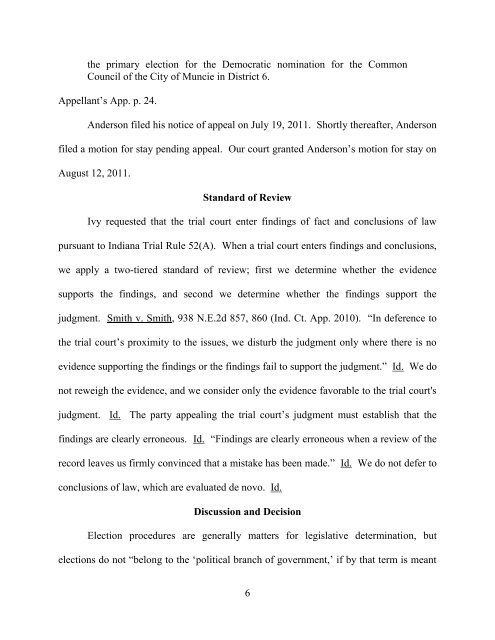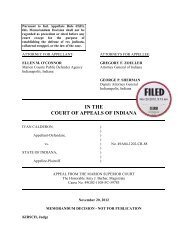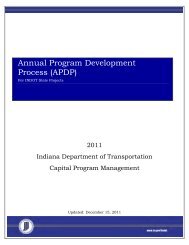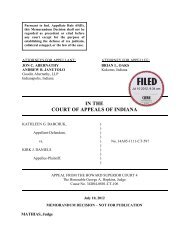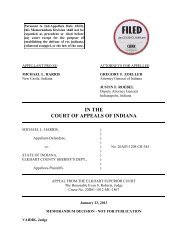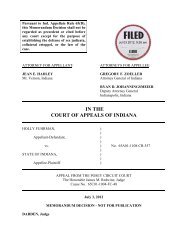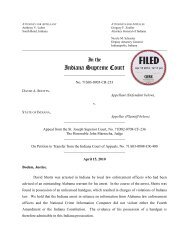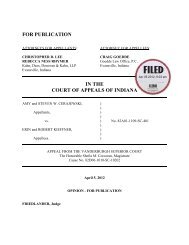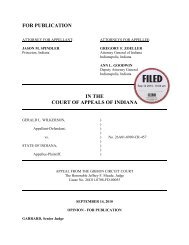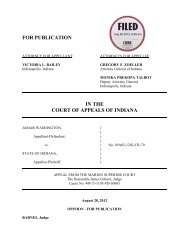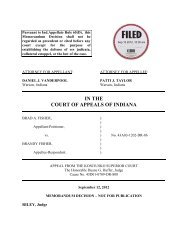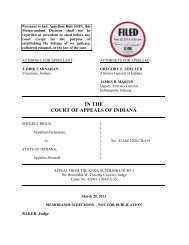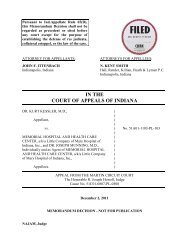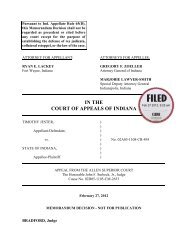Julius J. Anderson v. Richard M. Ivy - State of Indiana
Julius J. Anderson v. Richard M. Ivy - State of Indiana
Julius J. Anderson v. Richard M. Ivy - State of Indiana
You also want an ePaper? Increase the reach of your titles
YUMPU automatically turns print PDFs into web optimized ePapers that Google loves.
the primary election for the Democratic nomination for the Common<br />
Council <strong>of</strong> the City <strong>of</strong> Muncie in District 6.<br />
Appellant‟s App. p. 24.<br />
<strong>Anderson</strong> filed his notice <strong>of</strong> appeal on July 19, 2011. Shortly thereafter, <strong>Anderson</strong><br />
filed a motion for stay pending appeal. Our court granted <strong>Anderson</strong>‟s motion for stay on<br />
August 12, 2011.<br />
Standard <strong>of</strong> Review<br />
<strong>Ivy</strong> requested that the trial court enter findings <strong>of</strong> fact and conclusions <strong>of</strong> law<br />
pursuant to <strong>Indiana</strong> Trial Rule 52(A). When a trial court enters findings and conclusions,<br />
we apply a two-tiered standard <strong>of</strong> review; first we determine whether the evidence<br />
supports the findings, and second we determine whether the findings support the<br />
judgment. Smith v. Smith, 938 N.E.2d 857, 860 (Ind. Ct. App. 2010). “In deference to<br />
the trial court‟s proximity to the issues, we disturb the judgment only where there is no<br />
evidence supporting the findings or the findings fail to support the judgment.” Id. We do<br />
not reweigh the evidence, and we consider only the evidence favorable to the trial court's<br />
judgment. Id. The party appealing the trial court‟s judgment must establish that the<br />
findings are clearly erroneous. Id. “Findings are clearly erroneous when a review <strong>of</strong> the<br />
record leaves us firmly convinced that a mistake has been made.” Id. We do not defer to<br />
conclusions <strong>of</strong> law, which are evaluated de novo. Id.<br />
Discussion and Decision<br />
Election procedures are generally matters for legislative determination, but<br />
elections do not “belong to the „political branch <strong>of</strong> government,‟ if by that term is meant<br />
6


